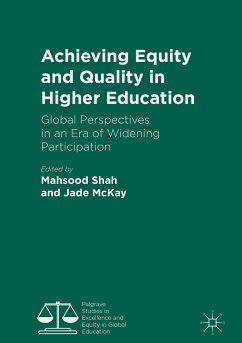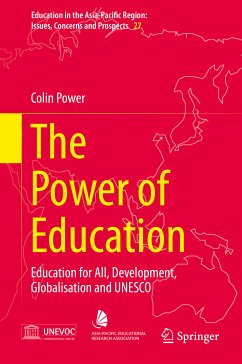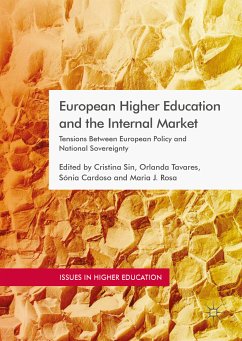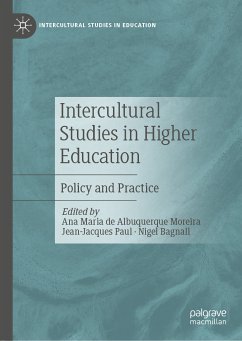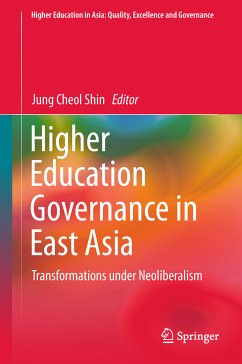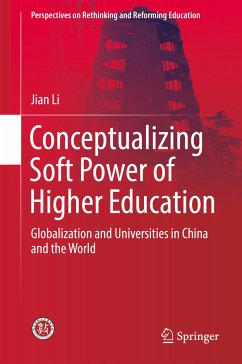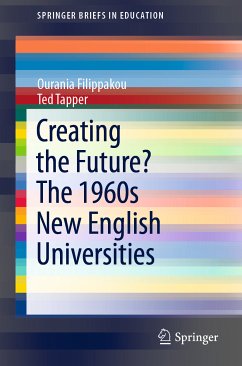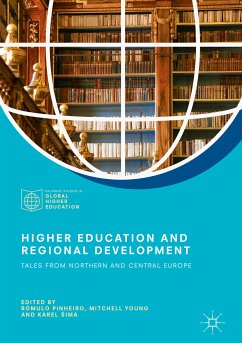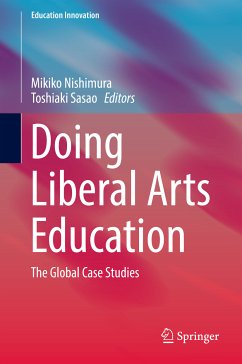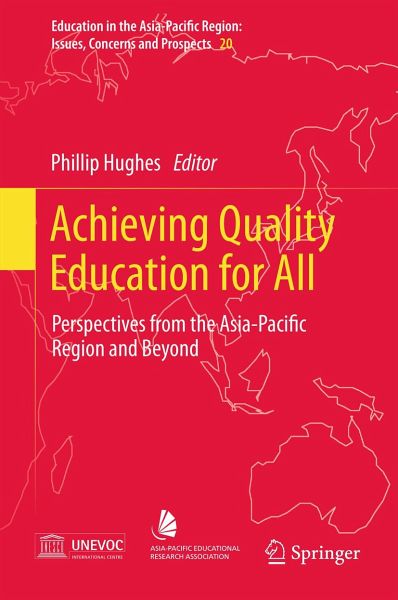
Achieving Quality Education for All (eBook, PDF)
Perspectives from the Asia-Pacific Region and Beyond
Redaktion: Hughes, Phillip
Versandkostenfrei!
Sofort per Download lieferbar
72,95 €
inkl. MwSt.
Weitere Ausgaben:

PAYBACK Punkte
36 °P sammeln!
Due to the development of the international Education for All and Education for Sustainable Development movements, for which UNESCO is the lead agency, there has been an increasing emphasis on the power of education and schooling to help build more just and equitable societies. Thus giving everyone the opportunity to develop their talents to the full, regardless of characteristics such as gender, socio-economic status, ethnicity, religious persuasion, or regional location. As enshrined in the United Nations Declaration on Human Rights over five decades ago, everyone has the right to receive a ...
Due to the development of the international Education for All and Education for Sustainable Development movements, for which UNESCO is the lead agency, there has been an increasing emphasis on the power of education and schooling to help build more just and equitable societies. Thus giving everyone the opportunity to develop their talents to the full, regardless of characteristics such as gender, socio-economic status, ethnicity, religious persuasion, or regional location. As enshrined in the United Nations Declaration on Human Rights over five decades ago, everyone has the right to receive a high quality and relevant education. In order to try to achieve this ideal, many countries are substantially re-engineering their education systems with an increasing emphasis on promoting equity and fairness, and on ensuring that everyone has access to a high quality and relevant education. They are also moving away from the traditional outlook of almost exclusively stressing formal education in schools as the most valuable way in which people learn, to accepting that important and valuable learning does not just occur in formal, dedicated education institutions, but also through informal and non-formal means. Thus learning is both lifelong and life-wide. This book brings together the experience and research of 40 recognised and experienced opinion leaders in education around the world. The book investigates the most effective ways of ensuring the UNESCO aim of effective education for all people in the belief that not only should education be a right for all, but also that education and schooling has the potential to transform individual lives and to contribute to the development of more just, humane and equitable societies.
Dieser Download kann aus rechtlichen Gründen nur mit Rechnungsadresse in A, B, BG, CY, CZ, D, DK, EW, E, FIN, F, GR, HR, H, IRL, I, LT, L, LR, M, NL, PL, P, R, S, SLO, SK ausgeliefert werden.




